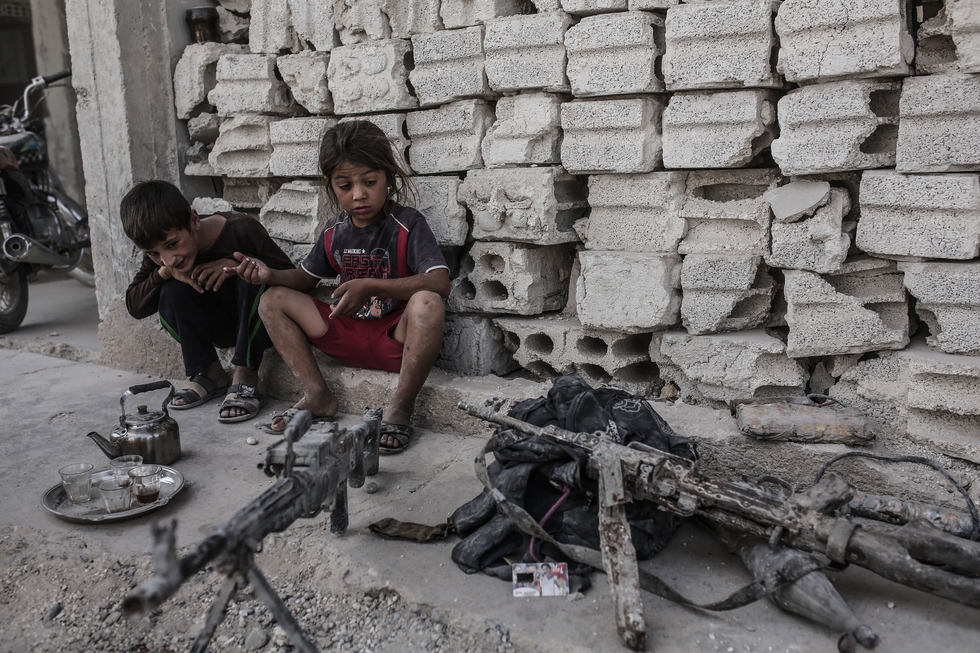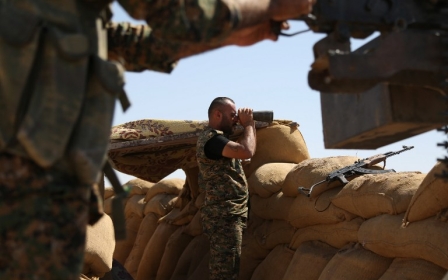Poll suggests Syrians believe civil war resolvable despite social strife

Syrians are overwhelmingly opposed to the division of the country and believe a political solution is still possible, according to a new poll.
In spite of the continuing carnage and a spiralling refugee crisis, the survey by ORB International said that 64 percent of Syrians believed that a political solution was still possible “despite the differences that exist between the Syrians".
The survey also revealed that 70 percent of Syrians were opposed to the division of the country, with only the Kurds being divided on the issue, split evenly 48 percent in favour and against.
The poll, which surveyed a cross section of 1,365 people across all of Syria’s 14 governorates - including areas controlled by IS - also suggested that Syrian President Bashar al-Assad was slightly more popular among ordinary Syrians that any of the opposition groups - though no one was ranked as having a net positive influence.
"It's very, very regional - if you look into the actual data it differs massively by region," Johnny Heald, managing director of ORB International, told Middle East Eye.
"At the moment, it's fair to say the opposition in Syria isn't as strong as it used to be. It's split right down the middle. It's been infiltrated by all kinds of militias - so Assad in certain sectors of society is the preferred option, but in others, absolutely not."
The government-controlled Alawite stronghold of Tartous viewed Assad’s influence least negatively at 11 percent while the opposition-controlled Idlib viewed him most negatively with 90 percent.
The US, UK and Saudi Arabia have all repeatedly stated that Assad has no future in post-war Syria and have called on him to go - though the UK recently conceded that he could stay in power for a transitional period.
However, many analysts have suggested that the lack of unity among the opposition and the rise of al-Qaeda-linked and inspired groups like the Islamic State group and al-Nusra Front has made the US more wary of who might hold power after his downfall.
The survey also shows that more Syrian men than women view IS as having a “completely negative” influence in Syria (53 percent versus 43 percent) though both genders viewed the group as negative overall.
Overall, 22 percent of Syrians said that IS is having a positive influence on their country.
Gathering data from Syrians has been difficult since the beginning of the country’s civil war 2011, both as a result of a government-imposed crackdown on media and NGOs and the increasing violence.
Heald said that ORB International had been operating in Syria since before the civil war and that a “team of interviewers and supervisors was already on the ground".
He said that using locals was the only effective way of gathering information from areas controlled by IS.
“The supervisor who looks after the interviewing in [IS stronghold] Raqqa is actually from Raqqa,” he told MEE. “You don’t send people into those areas who are not from those areas.”
“The rules are, basically, as long as you’re not from a Western media organisation and don’t pull out a camera, you can go and talk to the people and I think one of the reasons our supervisor was happy or content for that to happen is because he knows that over time more people will say that they are tolerant of IS.”
The poll suggested that the vast majority of Syrians - 81 percent - believed that IS was the creation of the US and other foreign countries.
New MEE newsletter: Jerusalem Dispatch
Sign up to get the latest insights and analysis on Israel-Palestine, alongside Turkey Unpacked and other MEE newsletters
Middle East Eye delivers independent and unrivalled coverage and analysis of the Middle East, North Africa and beyond. To learn more about republishing this content and the associated fees, please fill out this form. More about MEE can be found here.




